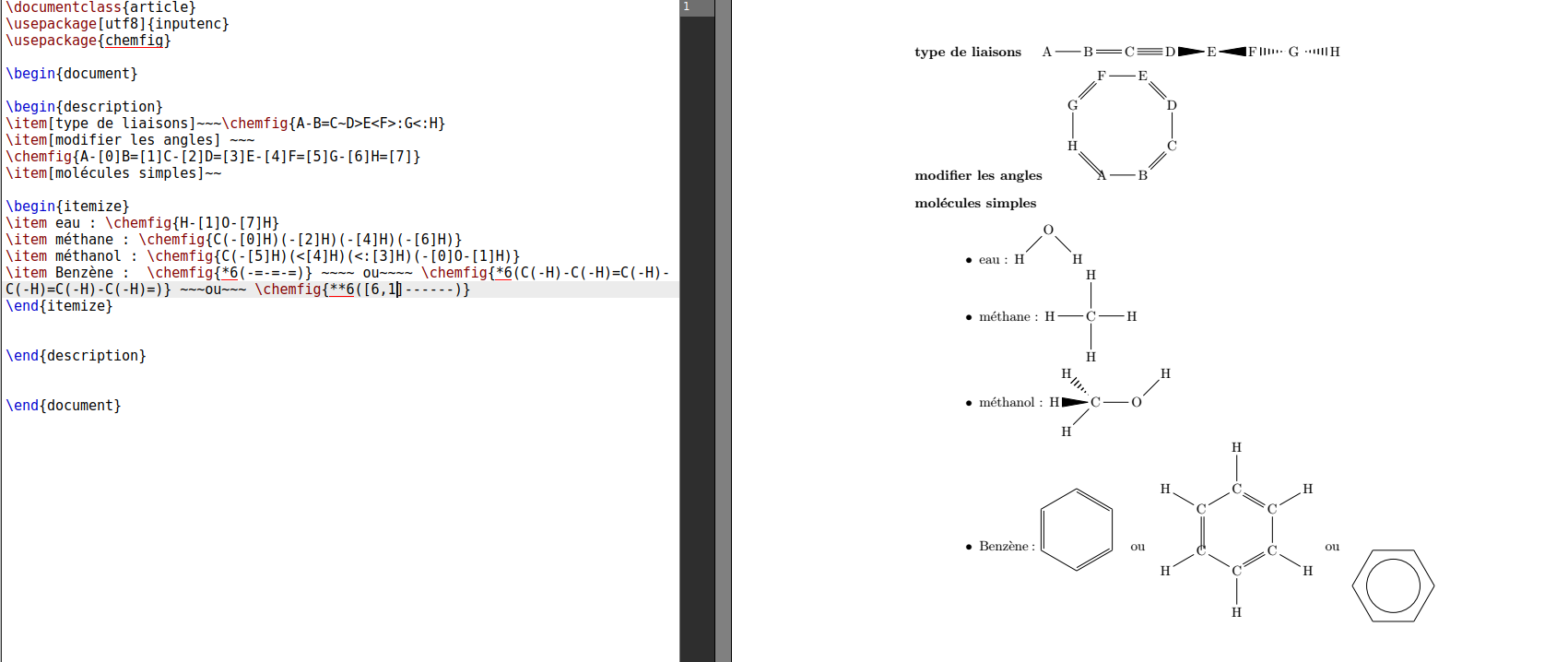I knew for a long time that we can draw molecules with #LaTeX But I've never tried before. With package chemfig it's really easy and fast, I just need to recall #chemistry formulas from memory !

One person like that
1 Shares
I knew for a long time that we can draw molecules with #LaTeX But I've never tried before. With package chemfig it's really easy and fast, I just need to recall #chemistry formulas from memory !

The formatting conventions on Diaspora and other Federation/Fediverse platforms is Markdown, what's called a lightweight markup language. There are several others, including AsciiDoc, which heavily inspired the markup used at Google+.
There is a software utility, Pandoc, available as a command-line tool on Linux, Mac, and (through various command-line tools such as Cygwin) on Windows. It is a document-transformation Swiss army life, capable of converting from and to a vast number of formats, including:
From: (several dialects of) Markdown, reStructuredText, textile, HTML, DocBook, LaTeX, MediaWiki markup, TWiki markup, TikiWiki markup, Creole 1.0, Vimwiki markup, OPML, Emacs Org-Mode, Emacs Muse, txt2tags, Microsoft Word docx, LibreOffice ODT, EPUB, or Haddock markup
To: not only each of these, but various HTML formats, word processor formats, ebook formats, documentation, archival, page-laoyout, outline TeX, PDF, and others.
I've been working on a documentation project for which I use Pandoc and a Makefile to publish to numerous formats with a single command. Make itself is a tool designed originally for programmers to convert source code to runnable software, but it has all kinds of uses in numerous projects, given its ability to run specific recipes based on goals and dependencies.
When I've discussed my various future plans for online publishing, Pandoc, or tools based on, using, or closely resembling it, are very much what I have in mind as part of my core toolkit.
Pandoc has been the single most useful Linux tool I've discovered in the past five years, if not ten.
#googleplus #pandoc #markdown #writing #documentConversion #HTML #PDF #LaTeX